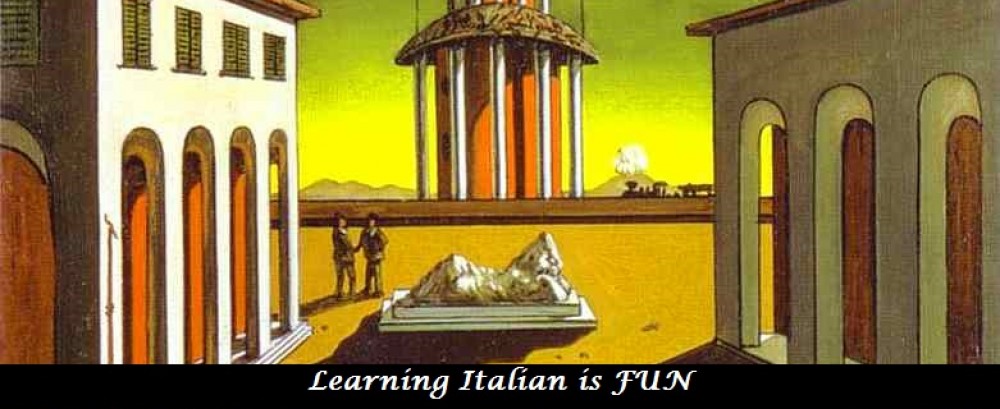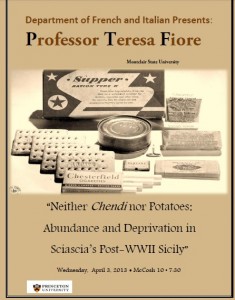Metti il tuo insegnante di italiano in cucina! – Put your Italian teacher in the kitchen!

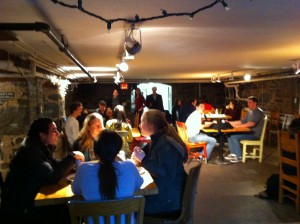
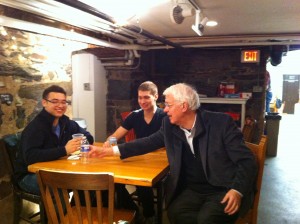
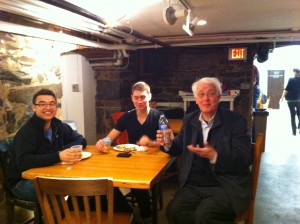
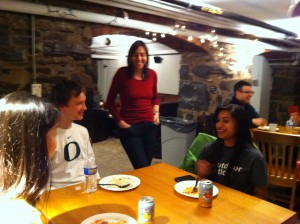
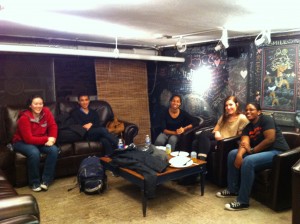
![photo[4]](https://blogs.princeton.edu/italian/wp-content/uploads/sites/118/2013/04/photo4-225x300.jpg)
![photo[9]](https://blogs.princeton.edu/italian/wp-content/uploads/sites/118/2013/04/photo9-225x300.jpg)
![photo[11]](https://blogs.princeton.edu/italian/wp-content/uploads/sites/118/2013/04/photo11-225x300.jpg)
![photo[12]](https://blogs.princeton.edu/italian/wp-content/uploads/sites/118/2013/04/photo12-225x300.jpg)
![photo[13]](https://blogs.princeton.edu/italian/wp-content/uploads/sites/118/2013/04/photo13-225x300.jpg)
Ciao Enzo
Goodbye Enzo Jannacci
“Ho visto un re” Dario Fo – Enzo Jannacci
“Neither Chendi nor Potatoes: Abundance and Deprivation in Sciascia’s Post-WWII Sicily”
Happy Birthday Italy!
17 marzo 2013. Anniversario dell’Unificazione d’Italia. Italy celebrates the 152th anniversary of its unification as a single state.
Buonanotte all’Italia, Ligabue (2008)
Buonanotte all’Italia deve un po’ riposare
tanto a fare la guardia c’è un bel pezzo di mare
c’è il muschio ingiallito dentro questo presepio
che non viene cambiato, che non viene smontato
e zanzare vampiri che la succhiano lì
se lo pompano in pancia un bel sangue così
Buonanotte all’Italia che si fa o si muore
o si passa la notte a volerla comprare
come se gli angeli fossero lì
a dire che si
è tutto possibile
come se i diavoli stessero un po’
a dire di no, che son tutte favole
Buonanotte all’Italia che ci ha il suo bel da fare
tutti i libri di storia non la fanno dormire
sdraiata sul mondo con un cielo privato
fra San Pietri e Madonne
fra progresso e peccato
fra un domani che arriva ma che sembra in apnea
ed i segni di ieri che non vanno più via
di carezza in carezza
di certezza in stupore
tutta questa bellezza senza navigatore
come se gli angeli fossero lì
a dire che si
è tutto possibile
come se i diavoli stessero un po’
a dire di no, che son tutte favole
Buonanotte all’Italia con gli sfregi nel cuore
e le flebo attaccate da chi ha tutto il potere
e la guarda distratto come fosse una moglie
come un gioco in soffitta che gli ha tolto le voglie
e una stella fa luce senza troppi perché
ti costringe a vedere tutto quello che c’è
Buonanotte all’Italia che si fa o si muore
o si passa la notte a volersela fare…
SPAGHETTATA, 4 Aprile 2013
Why do the Italians live longer than us? Perché gli italiani vivono più a lungo di noi?
By Fergus Walsh, Medical Correspondent, BBC News Helath.
What is it about the Italians? They smoke more than us, they earn less, their economy is in even worse shape than ours, they spend less on healthcare, and yet – they live longer. Not just a bit, but a whopping 18 months more on average.
CLICK HERE TO KNOW WHY/ CLICCA QUI PER SAPERE PERCHE’
Gli italiani e la prima colazione/ Italians and breakfast
E tu, cosa mangi a colazione? What about you? What do you eat for breakfast?
Caffè
Caffè macchiato
Cappuccino
Cornetto semplice
Cornetto con la marmellata
Cornetto con la crema
Spremuta d’arancia
Succo d’arancia
Latte e caffè
Festival di Sanremo 2013
Ecco la canzone che ha vinto il Festival di Sanremo 2013 / Here is the winning song of Sanremo Music Festival 2013: “L’essenziale” by Marco Mengoni.
Italian 101 first lesson (prima lezione di italiano)
Let’s dance the first italian verbs/ Balliamo i primi verbi!
DANCE and LEARN! BALLA E IMPARA! (Gioca Jouer by Claudio Cecchetto, 1981)
The world’s most beautiful subway is in Naples (NAPOLI)
E’ Carnevale!
Siete mai stati in Italia durante il Carnevale? / Have you ever been to Italy during Carnival season?
Presidential Proclamation–150th Anniversary of the Unification of Italy
A PROCLAMATION
On March 17, Italy celebrates the 150th anniversary of its unification as a single state. On this day, we join with Italians everywhere to honor the courage, sacrifice, and vision of the patriots who gave birth to the Italian nation. At a time when the United States was fighting for the preservation of our own Union, Giuseppe Garibaldi’s campaign for the unification of Italy inspired many around the world in their own struggles, including the 39th New York Infantry, also known as “The Garibaldi Guard.” Today, the legacy of Garibaldi and all those who unified Italy lives on in the millions of American women and men of Italian descent who strengthen and enrich our Nation.
Italy and the United States are bound by friendship and common dedication to civil liberties, democratic principles, and the universal human rights our countries both respect and uphold. As we mark this important milestone in Italian history, we also honor the joint efforts of Americans and Italians to foster freedom, democracy, and our shared values throughout the world.
NOW, THEREFORE, I, BARACK OBAMA, President of the United States of America, by virtue of the authority vested in me by the Constitution and the laws of the United States, do hereby proclaim March 17, 2011, as a day to celebrate the 150th Anniversary of the Unification of Italy. I encourage all Americans to learn more about the history of Italian unification and to honor the enduring friendship between the people of Italy and the people of the United States.
IN WITNESS WHEREOF, I have hereunto set my hand this sixteenth day of March, in the year of our Lord two thousand eleven, and of the Independence of the United States of America the two hundred and thirty-fifth.
BARACK OBAMA
SFIDA-Challenge: celebrities interviews in Italian!
Ecco la sfida (here is the challenge):
Can you identify at least 3 mistakes (grammar, pronuciation, vocabulary) in one, two or all three of these interviews? Try!
Kobe Bryant:
Colin Firth:
Jodie Foster (first 30 seconds):
Prisencolinensinainciusol
Do you know that this song released in 1972 is considered the first rap song?
It’s Gibberish, But Italian Pop Song Still Means Something, NPR Music (November 4th, 2012)
Prisencolinensinainciusol is a hit in any language, LA Observed (November 4th, 2012)
What do you think? Ti piace?
Concerto di Capodanno 2013, Gran Teatro La Fenice di Venezia
Va’ pensiero, chorus from the third act of Nabucco (1842) by Giuseppe Verdi.
Va’, pensiero, sull’ali dorate;
Va, ti posa sui clivi, sui colli,
ove olezzano tepide e molli
l’aure dolci del suolo natal!
Del Giordano le rive saluta,
di Sionne le torri atterrate…
Oh mia Patria sì bella e perduta!
O membranza sì cara e fatal!
Arpa d’or dei fatidici vati,
perché muta dal salice pendi?
Le memorie nel petto raccendi,
ci favella del tempo che fu!
O simile di Solima ai fati,
traggi un suono di crudo lamento;
o t’ispiri il Signore un concento
che ne infonda al patire virtù!
BUON ANNO! – HAPPY NEW YEAR!
Dialogo di un venditore di almanacchi e di un passeggere (Giacomo Leopardi 1798-1837)- Dialogue between an Almanac seller and a Passer-by
Vend. Almanacchi, almanacchi nuovi; lunari nuovi. Bisognano, signore, almanacchi?
Pass. Almanacchi per l’anno nuovo?
Vend. Sì signore.
Pass. Credete che sarà felice quest’anno nuovo?
Vend. O illustrissimo, sì, certo.
Pass. Come quest’anno passato?
Vend. Più più assai.
Pass. Come quello di là?
Vend. Più più, illustrissimo.
Pass. Ma come qual altro? Non vi piacerebb’egli che l’anno nuovo fosse come qualcuno di questi anni ultimi?
Vend. Signor no, non mi piacerebbe.
Paas. Quanti anni nuovi sono passati dacchè voi vendete almanacchi?
Vend. Saranno vent’anni, illustrissimo.
Pass. A quale di cotesti vent’anni vorreste che somigliasse l’anno venturo?
Vend. Io? Non saprei.
Pass. Non vi ricordate di nessun anno in particolare, che vi paresse felice?
Vend. No in verità, illustrissimo.
Pass. E pure la vita è una cosa bella. Non è vero?
Vend. Cotesto si sa.
Pass. Non tornereste voi a vivere cotesti vent’anni, e anche tutto il tempo passato, cominciando da che nasceste?
Vend. Eh, caro signore, piacesse a Dio che si potesse.
Pass. Ma se aveste a rifare la vita che avete fatta nè più nè meno, con tutti i piaceri e i dispiaceri che avete passati?
Vend. Cotesto non vorrei.
Pass. Oh che altra vita vorreste rifare? La vita c’ho fatta io, o quella del principe, o di chi altro? O non credete che io, e che il principe, e che chiunque altro risponderebbe come voi per l’appunto; e che avendo a rifare la stessa vita che avesse fatta, nessuno vorrebbe tornare indietro?
Vend. Lo credo cotesto.
Pass. Nè anche voi tornereste indietro con questo patto, non potendo in altro modo?
Vend. Signor no davvero, non tornerei.
Pass. Oh che vita vorreste voi dunque?
Vend. Vorrei una vita così come Dio me la mandasse, senz’altri patti.
Pass. Una vita a caso, e non saperne altro avanti, come non si sa dell’anno nuovo?
Vend. Appunto.
Pass. Così vorrei ancor io se avessi a rivivere e così tutti. Ma questo è segno che il caso, fino a tutto quest’anno ha trattato tutti male. E si vede chiaro che ciascono è d’opinione che sia stato più o di più peso il male che gli è toccato che il bene; se a patto di riavere la vita di prima con tutto il suo bene e il suo male, nessuno vorrebbe rinascere. Quella vita ch’è una cosa bella, non è la vita che si conosce, ma quella che non si conosce; non la vita passata, ma la futura. Coll’anno nuovo, il caso incomincerà a trattar bene voi e me e tutti gli altri, e si principierà la vita felice. Non è vero?
Vend. Speriamo.
Pass. Dunque mostratemi l’almanacco più bello che avete.
Vend. Ecco, illustrissimo. Cotesto vale trenta soldi.
Pass. Ecco trenta soldi.
Vend. Grazie, illustrissimo: a rivederla. Almanacchi, almanacchi nuovi; lunari nuovi.
G. Leopardi
————————
Dialogue between an Almanac seller and a Passer-by
SELLER — Almanacs! New Almanacs! New Calendars! Who wants new Almanacs?
PASSER-BY — Almanacs for the New Year?
SELLER — Yes, Sir.
PASSER-BY — Do you think this New Year will be a happy one?
SELLER — Yes, to be sure, Sir.
PASSER-BY — As happy as last year?
SELLER — Much more so.
PASSER-BY — As the year before?
SELLER — Still more, Sir.
PASSER-BY — Why? Should you not like the New Year to resemble one of the past years?
SELLER — No, Sir, I should not.
PASSER-BY — How many years have gone by since you began to sell almanacs?
SELLER — About twenty years, Sir.
PASSER-BY — Which of the twenty should you wish the New Year to be like?
SELLER — I do not know.
PASSER-BY — Do you not remember any particular year which you thought a happy one?
SELLER — Indeed I do not, Sir.
PASSER-BY — And yet life is a fine thing, is it not?
SELLER — So they say.
PASSER-BY — Would you not like to live these twenty years, and even all your past life from your birth, over again?
SELLER — Ah, dear Sir, would to God I could!
PASSER-BY — But if you had to live over again the life you have already lived, with all its pleasures and sufferings?
SELLER — I should not like that.
PASSER-BY — Then what other life would you like to live? Mine, or that of the Prince, or whose? Do you not think that I, or the Prince, or any one else, would reply exactly as you have done; and that no one would wish to repeat the same life over again?
SELLER — I do believe that.
PASSER-BY — Then would you recommence it on this condition, if none other were offered you?
SELLER — No, Sir, indeed I would not.
PASSER-BY — Then what life would you like?
SELLER — Such an one as God would give me without any conditions.
PASSER-BY — A life at hap-hazard, and of which you would know nothing beforehand, as you know nothing about the New Year?
SELLER — Exactly.
PASSER-BY — It is what I should wish, had I to live my life over again, and so would every one. But this proves that Fate has treated us all badly. And it is clear that each person is of opinion that the evil he has experienced exceeds the good, if no one would wish to be re-born on condition of living his own life over again from the beginning, with just its same proportion of good and evil. This life, which is such a fine thing, is not the life we are acquainted with, but that of which we know nothing; it is not the past life, but the future. With the New Year Fate will commence treating you, and me, and every one well, and the happy life will begin. Am I not right?
SELLER — Let us hope so.
PASSER-BY — Show me the best almanac you have.
SELLER — Here it is, Sir. This is worth thirty soldi.
PASSER-BY — Here are thirty soldi.
SELLER — Thank you, Sir. Good day, Sir. — Almanacs! New Almanacs! New Calendars!
Translated by Charles Edwardes
“Natale” di Giuseppe Ungaretti
A great poem and a good listening and pronunciation practice: Natale by Italian poet Giuseppe Ungaretti (1888-1970)
Non ho voglia di tuffarmi in un gomitolo di strade
Ho tanta stanchezza sulle spalle
Lasciatemi così come una cosa posata in un angolo e dimenticata
Qui non si sente altro che il caldo buono
Sto con le quattro capriole di fumo del focolare
(Napoli, il 26 dicembre 1916)
I don’t want/ to dive / into a tangle / of streets
I have so much / weariness / on my shoulders
Leave me / like a / thing / placed / in a / corner / and forgotten
Here / one feels nothing / but the good warmth
I’ll stay / with the four / somersaults / of smoke / from the hearth.
Corsi Spring 2013
Princeton in Macerata
Would you like to know more about the program? Click here: Princeton in Macerata
The deadline for submitting the application is February 20th 2015.
Portrait of Macerata
Watch this wonderful video by David Kong! GRAZIE David for sharing it with us!
David’s video in the Italian News:
Qui Macerata
Università di Macerata
Il Resto del Carlino
Ciao
Here we are
Buongiorno, buonasera, ciao, buona notte, buona giornata, salve, buon pomeriggio, arrivederci, a presto, a tra poco, ci vediamo, buona serata, addio.
Benvenuti!
Welcome to Princeton WordPress.
